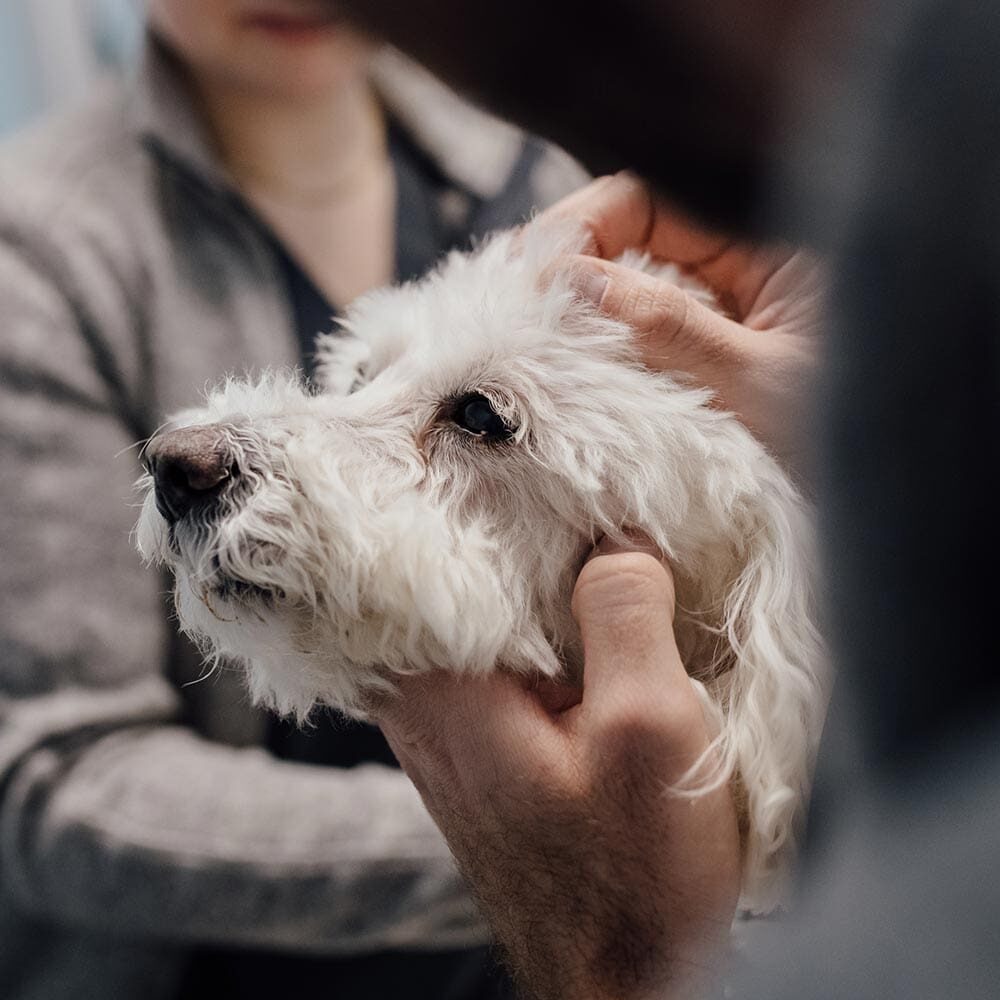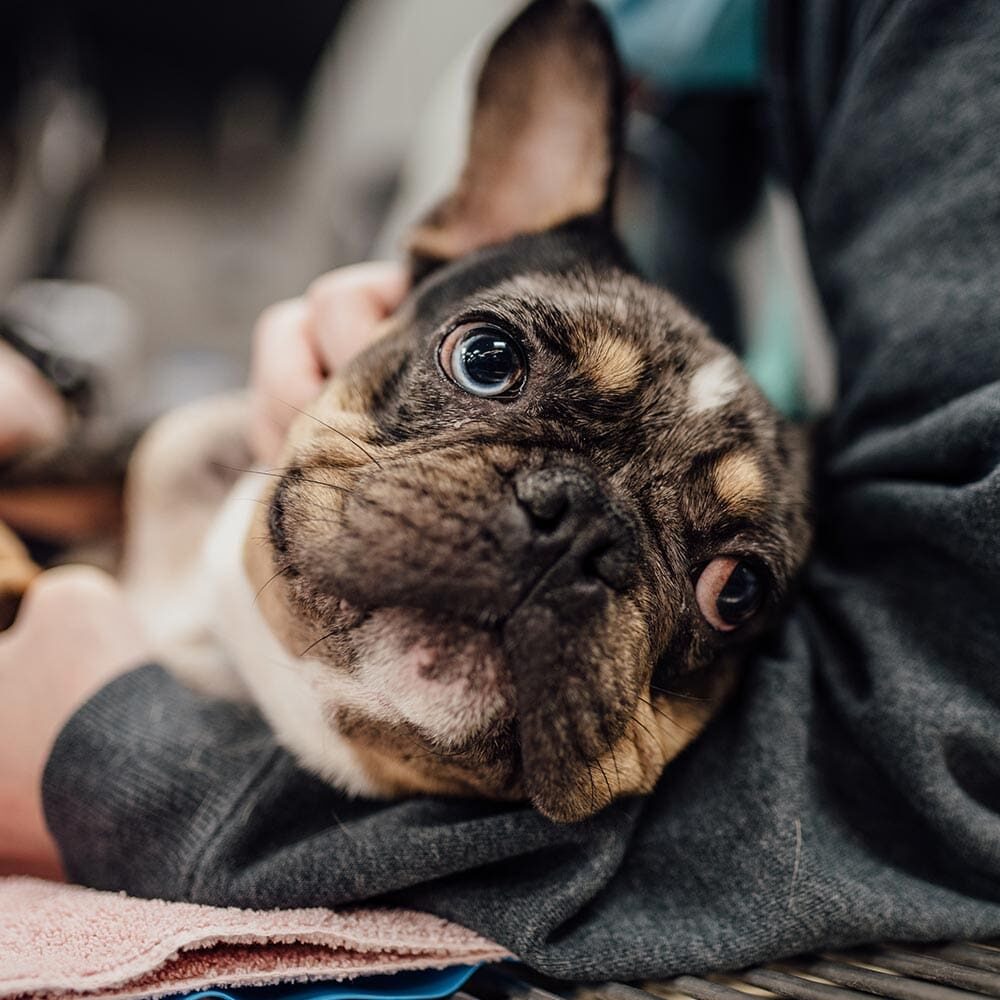What Causes Cholangiohepatitis in Dogs?
Cholangiohepatitis in dogs occurs most commonly due to a bacterial or viral infection. Bacteria gain access to the gall bladder and bile ducts from the intestinal tract, but bacterial and viral infections can be spread through the bloodstream as well. Some patients will continue to have inflammation after the infection is cleared, and require therapy to attenuate the immune response.


Clinical Signs
Dogs with cholangiohepatitis are likely to have a decreased appetite, fever, weight loss, vomiting, diarrhea, icterus (jaundice), and, in some cases abdominal fluid accumulation. Most patients are significantly ill, but if evaluated early in the disease, some patients are mildly lethargic with elevated liver values on blood tests. Rarely, the only abnormality is abnormal liver values in blood work.
Diagnosis
When patients are suspected of having cholangiohepatitis, blood tests and imaging studies are recommended. Specific blood and urine tests looking for infectious causes of liver inflammation may also be performed. Additionally, a liver biopsy and culture obtained through ultrasound guidance, abdominal exploratory or laparoscopy may be recommended. Biopsy and culture results will help drive therapeutic decisions as well as prognosis.
Treatment
Therapy for patients with infectious cholangiohepatitis is targeted toward the suspected organism. Broad-spectrum antibiotics are generally started as soon as cultures and blood tests have been obtained and then the antibiotic choice will be altered if indicated by culture results. Because patients are often systemically ill, anorexic, and nauseated, hospitalization for intravenous fluids and support might be indicated.
Patients who develop an immune-mediated complication of infectious cholangiohepatitis might need to be treated with corticosteroids (prednisone) and other immunomodulating medications.


Liver supplements are often used adjunctively to standard therapy for patients with cholangiohepatitis and include S-adenosylmethionine (Sam E), milk thistle, or its equivalent. Ursodiol is a bile acid that helps reduce the viscosity of bile and improve flow through diseased bile ducts. Sometimes, liver-specific diets are recommended as well. Special diets for liver disease may be obtained from your primary care veterinarian’s office.
Prognosis
Patients with infectious cholangiohepatitis, especially those that are diagnosed early and the offending organism is identified, generally will make a full recovery with appropriate therapy. Some patients have a more complicated recovery, with some permanent loss of liver function. Patients who develop a secondary chronic inflammatory liver condition are likely to need lifelong medication and monitoring, but many can be managed for years. Chronic, uncontrolled liver inflammation can lead to scar tissue, the end result of which is cirrhosis of the liver and failure of the organ. Follow-up lab tests and occasionally a second biopsy give a better assessment of the current status and severity of inflammation, which may alter the aggressiveness of treatment and better provide an accurate prognosis.
Long Term Follow-Up
Dogs with severe cholangiohepatitis requiring hospitalization for intravenous therapy and support are generally followed by internal medicine specialists during their hospital stay. Once the patient is stable for release, follow-up for lab tests, ultrasound, and medication adjustments will be planned. Because decisions about changes in medication are based on observations made during the physical exam in addition to other testing, we recommend that follow-up for this disease is performed at Veterinary Specialty Center. Medications should never be adjusted or stopped without speaking to the specialist in charge of the case. All routine preventive care should continue with your primary care veterinarian. Patients who make a full physical and biochemical recovery do not generally need to follow up with the specialists at Veterinary Specialty Center.

